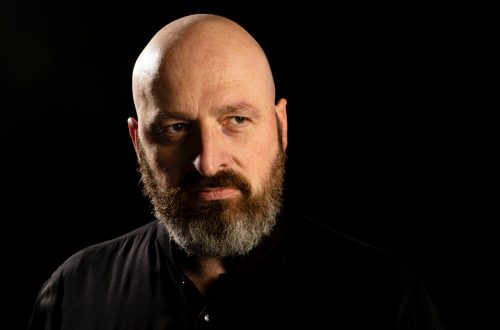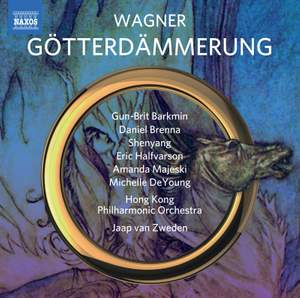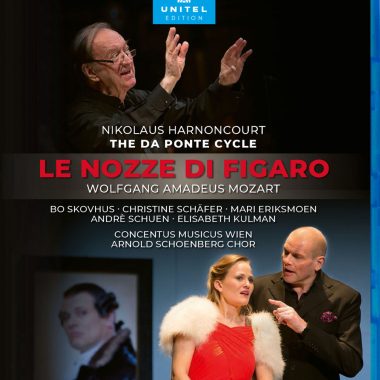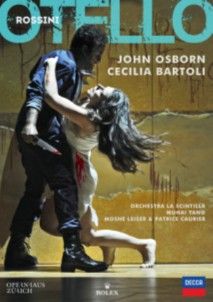Peter Kálmán

Autre chanteur familier de ce répertoire, Peter Kálmán détient toutes les clés d’un Don Magnifico affreux, sale et méchant, la maîtrise du chant syllabique n’étant pas la moindre.
Forum Opera, Christophe Rizoud
Peter Kálmán est fantastique dans ce personnage ridicule et imbus de lui-même, brutal et mégalomane, que le baryton-basse défend avec une puissance vocale et une habileté comique tout à fait remarquables. Il faut d’ailleurs, pour camper ces personnages à l’humeur si changeante, une technique de bel canto hors pair et un investissement émotionnel qui puisse traduire l’équilibre subtil entre un style pétillant et léger et des passages d’une touchante sincérité.
Artistikrezo, Hélène Kuttner
Peter Kálmánfait ce qu’il veut de sa voix et porte bien le nom de son personnage, Don Magnifico (le père). Même dans les vitesses vertigineuses de la partition, sa ligne vocale balaye les rythmes dans toute l’amplitude de sa tessiture, allant même -pour des effets comiques- jusqu’à l’infragrave et à l’aigu de fausset.
Ôlyrix, Charles Arden
Déjà remarquable Michele dans Il Tabarro, le baryton-basse hongrois Peter Kálmán est un superbe Schicchi, jouant très finement sur le contraste entre son apparence mal dégrossie et sa réelle habileté.
Crescendo Magazine, Patrice Lieberman
Acteur plein d’aisance, le baryton-basse hongrois Peter Kálmán trouve dans Puccini un terrain fertile pour sa voix : Michele sonore, il incarne ensuite un Schicchi tout de verve et de persuasion.
Opera Online, Emmanuel Andrieu
Peter Kálmán, lui, fascine dans ses deux rôles. La voix est superbement timbrée dans les graves ce qui convient particulièrement aux accents crépusculaires de Michele dans Il tabarro mais également, sans avoir besoin de chercher à l’alléger, à la truculence de Schicchi. Il se montre littéralement terrifiant lorsqu’il secoue Luigi avec ses « Ripeti, ripeti » avant de le tuer. Il est désopilant lorsqu’il donne des cours de droit à la famille d’escrocs et prononce avant de finir dans un ton nasillard « li lascio al caro affezionato amico… Gianni Schicchi ! ». Sa double performance – qui commence et termine ainsi la soirée – est véritablement à saluer.
Toute La Culture, Paul Fourier
Michele è stato interpretato dal basso-baritono ungherese Peter Kálmán, che sarà poi pure Gianni Schicchi, e che ha eccelso soprattutto in quest’ultimo ruolo buffo.
Giornale della Musica, Alma Torretta
I’ve never found the stock buffo characters in Italian operas to be interesting, but Hungarian bass-baritone Peter Kálmán has made me re-evaluate those prejudices. His Don Magnifico was genuinely hilarious, managing to blow the dust off two centuries of buffo comic traditions with this fresh, funny take on this obnoxious drunkard. With a big, bright voice and crisp diction, Kálmán deftly elevated his dream aria and the wine-tasting scene to high points.
Opera Wire, John Carroll
The uproariously funny father, Don Magnifico, is portrayed with all of his character faults by bass-baritone Peter Kálmán, a rousing good singer with great comic instincts.
Seattle Times, Melinda Bargreen
Peter Kalman’s Alberich brings to mind Gustav Neidlinger, who owned the role in the ’60s and ’70s; Kalman’s sneering tone is just as expressive.
ClassicsToday, Robert Levine
The singer in the role of Alberich in particular gives vocal shine to this performance with his enormous expression. Peter Kálmán justly earns thunderous acclamations at the end; his acting alone is tremendously gripping, and in his singing he displays many nuances of this character that is one of the most colourful in the Ring. From Alberich’s foolish infatuation with the Rhinemaidens in the beginning to his arrogant pride in the Nibelheim scene and the bitter hatred as he utters his curse, which greatly influences the development of the tetralogy, Kálmán is capable to show it all.
Bachtrack, Christoph Wurzel
Peter Kálmán trouve dans le personnage de Don Magnifico un rôle à sa mesure, lui permettant d’exploiter ses talents tant scéniques que vocaux. La tessiture tendue de la partition semble ne lui poser aucune difficulté, la voix étant toujours aussi pleine, projetée, éclatante. Plus encore, elle devient un outil comique privilégié, notamment avec l’usage de la voix de tête, provoquant inévitablement le rire du public.
OperaForum, Claire-Marie Caussin
Wer bei Peter Kálmán nicht gesehen hat, wie sich Augen weiten, der Unterkiefer nach unten klappt und die Sinne verliert, der weiß nicht, was liebeskrank heißt. Dem Ungarn gelingt eine Gratwanderung zwischen Karikatur und Tragikomödie, die auch noch ausnehmend gut gesungen ist: Keine Verzierung ist trotz wuchtigem Material angetäuscht. So klingen Rossini-Bässe.
Opernwelt, Markus Thiel
A broad range of repertoire on leading international stages distinguishes Peter Kálmán as one of the most dynamic bass-baritones before the public today. Highly regarded for his engaging character portrayals in the Italian buffo tradition, he is no less accomplished in the dramatic roles of Bartók, Strauss, and Wagner. Collaborations have yielded performances with many of the world’s most prestigious conductors including Alain Altinoglu, Christoph von Dohnányi, Ádám Fischer, Valery Gergiev, Nikolaus Harnoncourt, Enrique Mazzola, Nello Santi, Stefan Soltész, Franz Welser-Möst, and Jaap van Zweden.
The native of Budapest, Hungary has a varied and vibrant diary in the 2023-24 season. Highlights include a new production by Martin Kušej of Le nozze di Figaro at the Salzburger Festspiele led by Rafaël Pichon, La cenerentola for a debut at Semperoper Dresden and in a new production by Damiano Michieletto at the Théâtre des Champs-Élysées led by Thomas Hengelbrock, Giulio Cesare at the Wiener Staatsoper in a production by David Livermore conducted by Gianluca Capuano, L’elisir d’amore at the Latvian National Opera, productions of Cavalleria rusticana and Giulio Cesare at Opéra de Monte-Carlo, and Der Ring des Nibelungen and Tosca at the Hungarian State Opera.
Last season the artist bowed as Baron Scarpia in Tosca, the Villains in Les contes d’Hoffmann, and as Klingsor in Parsifal, all at the Hungarian State Opera; as Alberich in Der Ring des Nibelungen for Müpa Budapest; in Handel’s Alcina at Opéra de Monte-Carlo and in a European tour production of La clemenza di Tito with Les Musiciens du Prince-Monaco under the baton of Gianluca Capuano and starring his frequent musical collaborator, Cecilia Bartoli.
Peter Kálmán made his American operatic debut as Don Magnifico in La cenerentola at Seattle Opera, and other Buffo highlights of the recent past include Mustafà in L’italiana in Algeri at the Salzburg Whitsun Festival and the Théâtre des Champs-Élysées in a new co-production directed by Moshe Leiser and Patrice Caurier under the baton of Jean-Christophe Spinosi; a debut at the Théâtre Royal de la Monnaie as Michele and Gianni Schicchi in a new Tobias Kratzer production of Il trittico conducted by Music Director Alain Altinoglu; La cenerentola at the Théâtre des Champs-Élysées conducted by Enrique Mazzola; a debut at Glyndebourne as Bartolo in a revival of the Michael Grandage production of Le nozze di Figaro; a new production by Laurent Pelly of Donizetti’s Le convenienze ed inconvenienze teatrali at the Grand Théâtre du Genève, and a new production of Il barbiere di Siviglia at Théâtre des Champs-Élysées directed by Laurent Pelly and led by Jérémie Rhorer.
Equally adept in the dramatic bass-baritone repertoire, the artist has achieved particular international success as Alberich in Der Ring des Nibelungen and has performed the role in Budapest under the baton of Ádám Fischer and with the Hong Kong Philharmonic led by Jaap van Zweden (recorded commercially for the Naxos label).
At the Hungarian State Opera, where Peter Kálmán is a regular guest, he has performed Don Alfonso in Così fan tutte, Nick Shadow in The Rake’s Progress, Dulcamara in L’elisir d’amore, Herr von Faninal in Der Rosenkavalier, Sixtus Beckmesser in Die Meistersinger von Nürnberg, the title roles of Don Pasquale and Gianni Schicchi, and the world premiere of Levente Gyöngyösi’s Master and Margherita.
Additional credits that further illustrate Peter Kálmán’s artistic versatility include Schubert’s Fierrabras under the baton of Ingo Metzmacher at the Salzburg Festspiele, Norma in a cast anchored by Cecilia Bartoli with performances in Paris, Baden-Baden, and Monte-Carlo, Rossini’s Otello at the Opernhaus Zürich, Le Comte Ory at the Theater an der Wien, Handel’s Semele at the Salzburg Whitsun Festival, and staged presentations of Le nozze di Figaro under the batons of Paul McCreesh at Vlaamse Opera, at Theater an der Wien with Marc Minkowski, and in concert under the direction of the late Nikolaus Harnoncourt in Vienna.
Il Tabarro: Théâtre Royal de la Monnaie
Gianni Schicchi: Théâtre Royal de la Monnaie
Le nozze di Figaro: Salzburger Festspiele
VideoDon Giovanni: Müpa Budapest
VideoDon Giovanni: Müpa Budapest
VideoGötterdämmerung: Hong Kong Philharmonic
VideoIl barbiere di Siviglia: Théâtre des Champs-Elysées
VideoDas Rheingold: Müpa Budapest
Contact
Management (The Americas & Europe excl. Hungary)
Bill Palant, Étude Arts
Ansonia Station,Post Office Box 230132
New York, New York 10023
Tel: 929.777.0775
Email: bp@etudearts.com









